ABOUT
This is an urgent call to help save historic Tule Lake.
Tule Lake is where more than 24,000 Japanese Americans were imprisoned duringWorld War II. The proposed three-mile-long, eight-feet-high, barbed-wire fence would cut off Japanese American access to the site upon which they and their families were incarcerated. They say a fence is necessary to protect the site from wildlife, but birds are the major form of wildlife at the airport and a fence is ineffective in preventing bird strikes.
Resistance at Tule Lake tells the long-suppressed story of 12,000 Japanese Americans who dared to resist the U.S. government’s program of mass incarceration during World War II. Branded as “disloyals” and re-imprisoned at Tule Lake Segregation Center, they continued to protest in the face of militarized violence, and thousands renounced their U.S. citizenship. Giving voice to experiences that have been marginalized for over 70 years, this documentary challenges the nationalist, one-sided ideal of wartime “loyalty.”
Resistance at Tule Lake premiered early 2017 and continues to screen in various film festivals, museum exhibitions, educational institutions and local community organizations.
SCREENINGS
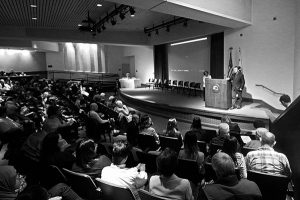
May 6th: National Broadcast Premiere
Sunday May 6th at 7pm EST/4pm PST
WORLD Channel’s 56 minute broadcast of Resistance at Tule Lake will air on Sunday, May 6th at 7pm EST / 4pm PST as part of May’s Asian Pacific American Heritage Month programming.
You can find your local PBS station here: http://bit.ly/2vE7Rwh
BIOS
Konrad Aderer
Director, Producer, Writer, Editor
Konrad Aderer is a documentary filmmaker and television journalist based in New York City. Konrad’s independent documentaries have focused on resistance arising in immigrant communities targeted by “national security” detention and profiling. His 2011 feature documentary Enemy Alien (2011), on the fight to free a post-9/11 detainee, was honored with a Courage in Media Award from Council for American Islamic Relations (CAIR). Konrad has received grants from the Center for Asian American Media, New York State Council of the Arts, National Park Service, and other funders.
Michelle Chen
Co-Producer
Michelle Chen has worked with WNET’s Children’s and Educational Media unit since 2004, creating content for public television and the web. She has received Emmy awards for her work as a producer on the PBS Kids series Cyberchase and the television and web project, Get the Math. She serves as producer on the groundbreaking American history video game, Mission US, which received the Japan Prize for Educational Media and the Games for Change Impact Award. She has also served as a producer on professional development documentary series for educators, including the Annenberg-funded Power of Music: P-5 Teaching inspired by El Sistema.
Natalie Shmuel
Associate Producer
Natalie Shmuel is a NYC based filmmaker and photographer. She picked up the art and industry of documentary storytelling while working on projects with influential award-winning filmmakers including Stanley Nelson, Laurens Grant, and June Cross. Natalie works closely with Academy member Thomas Allen Harris on multiple projects, including his award-winning feature documentary Through A Lens Darkly: Black Photographers and the Emergence of a People as well as his upcoming national TV series Family Pictures USA. She currently produces and conducts research for social justice documentaries including Third World Newsreel’s latest documentary feature by Konrad Aderer, Resistance at Tule Lake.
Natalie has a keen eye for film aesthetics and loves to work with fictional narratives having studied film theory and cinema history for 15+ years. Natalie works closely with various indie directors and producers as a trusted advisor and consultant for all things logistical and creative from development through post. Her passion is working on set as a Stills & Behind the Scenes Photographer.
Natalie also organizes multiple grassroots activism coalitions and direct actions for several policy reforms. She holds an M.A. in Cinema Studies from NYU Tisch, and received a B.A.cum laude in Film Studies and Psychology from Queens College.
JT Takagi
Consulting Producer
JT Takagi is an award winning filmmaker and the Executive Director of Third World Newsreel, a nonprofit media center that nurtures and facilitates work by and about people of color and social justice issues. Her own films include three nationally broadcast documentaries on PBS. She is also a sound engineer and educator, teaching at the City College of New York and the School of Visual Arts.
Barbara Takei
Project Advisor
Barbara Takei is a writer, researcher and community activist. As the Chief Financial Officer of the Tule Lake Committee, Takei has written proposals and managed grants to preserve historic Tule Lake structures, and worked with the National Park Service and other governmental agencies to preserve the Tule Lake Segregation Center. As a result of such efforts, Tule Lake Segregation Center was designated as a National Historic Landmark in 2006, and in December 2008 became a unit of the NPS as a National Historic Monument. At biannual pilgrimages to Tule Lake, she organizes panel discussions and site tours to educate hundreds of pilgrimage participants about this dark period of American history. She received multiple State and Federal grants to research and write about Tule Lake, including oral histories of “No-No’s” and Japanese Americans who renounced their U.S. citizenship, documenting rare and little-known stories of the Tule Lake Segregation Center. Takei co-wrote Tule Lake Revisited: A Brief History and Guide to the Tule Lake Concentration Camp Site (2001)(2012), and authored an article detailing the events that led nearly 6,000 Japanese Americans to renounce their U.S. citizenship, Legalizing Detention: The Department of Justice Denationalization Program (2005), (online at: www.discovernikkei.org/en/journal/2013/3/15/legalizing-detention-1/). She is currently co-authoring a history of Tule Lake with historian Roger Daniels, Tule Lake: America’s Worst Concentration Camp.
Tetsuden (Tetsu) Kashima
Project Advisor
Born in Oakland, California, Tetsuden Kashima was incarcerated at the Topaz, UT WRA concentration camp as an infant along with his family during World War II. Later, he received his B.A. from the University of California at Berkeley and his Ph. D. in Sociology from the University of California at San Diego. Tetsu came to the University of Washington in 1976 and retired in 2016 as an Emeritus Professor in the Department of American Ethnic Studies and an Adjunct Emeritus Professor in the Department of Sociology. He has been an invited Visiting Scholar at Ryukoku University in Kyoto and Associate Professor at Yamaguchi National University in Yamaguchi, Japan. Besides publications in numerous journals, he has authored many articles and published two books: Buddhism in America: The Social Organization of an Ethnic Religious Institution (1977) and Judgment Without Trial: Japanese American Imprisonment during World War II (2003h, 2004p).
Ruth Schell
Editor
Ruth Schell is a veteran editor of feature documentaries for Television and independent filmmakers. As a freelancer she has edited over 50 films – some won awards (3 Cine Eagles, 1st Prize Cinema du Réel) – and some were released theatrically. They include Resistance at Tule Lake, My Really Cool Legs, A Life Apart: Hasidism in America, The Last Ghost of War, Young, Muslim and French, Seen But Not Heard, Top Hats and Tales, Making Sense of the Sixties, Vietnam, A Television History. She has also been an editor on feature films in LA, NY, London and Paris: on Picture, Dialogue, Sound and Music (with Richard Lester). Credits include Storytelling Consultant/editor (Global Arts Group; Fool in a Bubble; Kennedy Center:Iberia Suite) and Teaching Master Classes in Editing (EICTV, Cuba).
Hiroshi Kashiwagi
Narrator
A native of Sacramento, California, Hiroshi Kashiwagi, a No-No Boy and a renunciant, was incarcerated at Tule Lake Concentration Camp during World War II. After the war, he attended UCLA (BA in Asian Languages, 1952) and UC Berkeley (MLS, 1966).
His work experience includes: editor, translator, interpreter, secretary at Buddhist Churches of America, Headquarters, 1957 – 1965; and reference librarian at San Francisco Public Library, 1966 — 1978.
He has published Swimming in the American: a Memoir and Selected Writings (winner of the American Book Award, 2005); Shoe Box Plays (a collection of nine plays); Ocean Beach (poems); and Starting from Loomis and Other Stories.
As an actor, some of his film credits are: Dark Circle; Black Rain; Hito Hata (Visual Communications); Hot Summer Winds (Emiko Omori); Rabbit in the Moon (Emiko Omori); The Virtues of Corned Beef Hash (Kerwin Berk); Infinity and Chashu Ramen (Kerwin Berk). His most notable work in theater was in Philip Kan Gotanda’s The Wash with the late Nobu McCarthy at the Eureka Theatre in San Francisco.
He is a lifetime member of SAG/AFTRA and the Dramatists Guild.
James Yaegashi
Voice of Iwao Shimizu
Son of a Japanese father and American mother, James Yaegashi was born in Yokohama and raised in rural Yamagata, Japan. He was educated in the Japanese system for the nation’s compulsory education and moved to the U.S. after high school. He earned a BA in literature from Wheaton College before receiving an MFA in acting and directing from the University of Missouri-Kansas City.
James moved to NYC in ’98 and has worked since as an actor for the stage, TV and film. He is currently a season regular for Marvel’s The Runaways on Hulu. He has originated many roles on and off Broadway including Richard Greenberg’s Take Me Out (2003 Tony Award for Best Play), A Naked Girl on the Appian Way (costarring with Jill Clayburgh and Matthew Morrison), John Guare’s A Few Stout Individuals, Julia Cho’s Durango, and Sarah Ruhl’s The Oldest Boy. His credits also include characters in world-premier stage adaptations of literary classics such as Yunioshi in Truman Capote’s Breakfast at Tiffany’s on Broadway and Toru in Haruki Murakami’s The Wind-Up Bird Chronicle at the Edinburgh Int’l Festival and the Singapore Arts Festival.
For the stage, he has directed My Friend Has Come for the Asian American Writers Workshop, Dancing with the Bird at the Japan Society in New York, and Ready or Not and It’s a Jungle Out There for the 52nd Street Project Playmaking series. He made his filmmaking debut in ’11 with Lefty Loosey Righty Tighty, which won Best Feature in the DIY film competition at Northside Festival, a trendsetter art festival in Williamsburg, Brooklyn.
James was the conceiver of the theater benefit “SHINSAI: Theaters for Japan” which took place on March 11, 2012, the one-year anniversary of the disasters in Japan, with participation from nearly 100 theaters, internationally. He also collaborates frequently with Japanese artists, translating award winning contemporary Japanese plays and subtitling major Japanese studio films.
He currently lives in Brooklyn, NY with his wife and two children. Anecdotally, James is also a martial artist with black belts in judo and aikido.
SUPPORT

Resistance at Tule Lake is a presentation of the Center for Asian American Media (CAAM) with funding provided by the Corporation for Public Broadcasting. Support was provided in part by New York State Council on the Arts.
PHOTOS
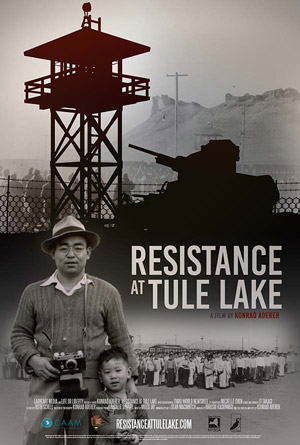
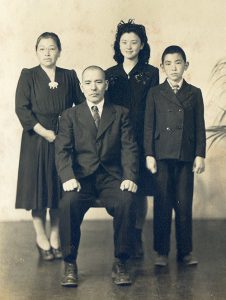
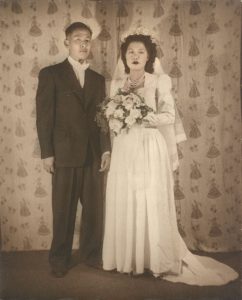
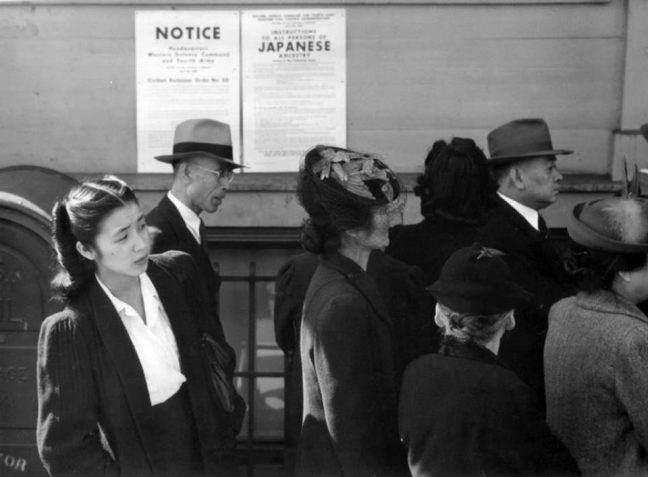
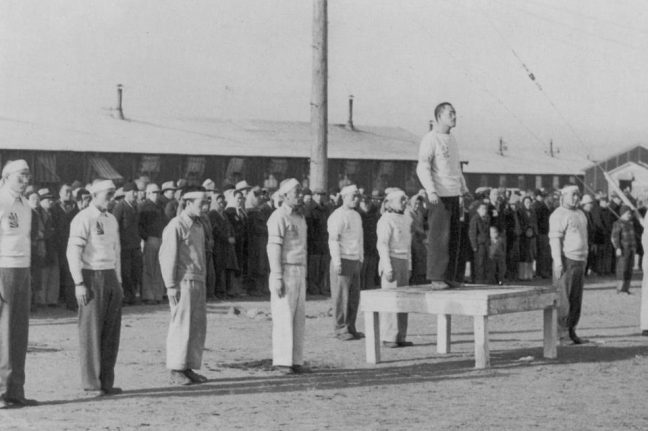
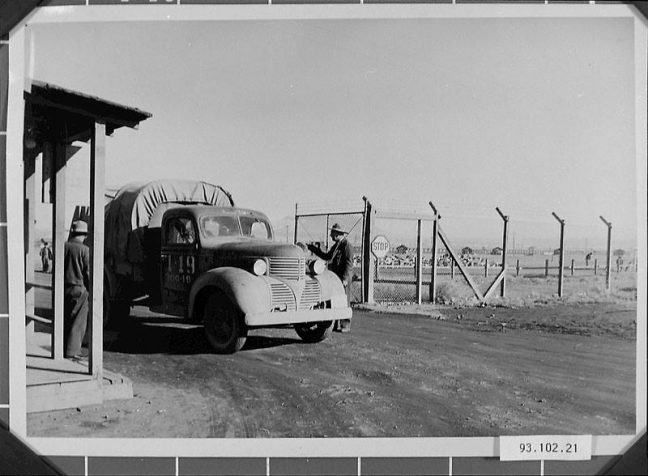
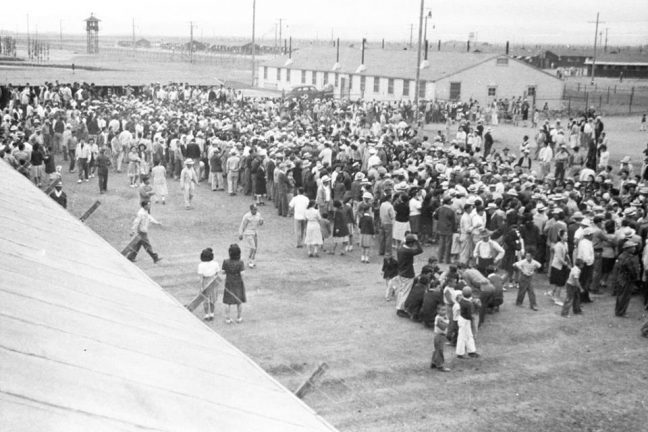
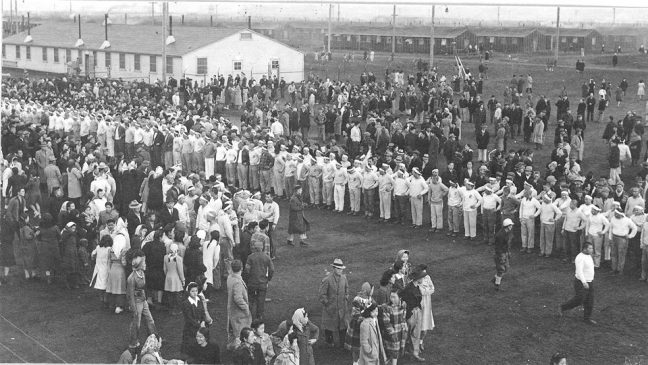
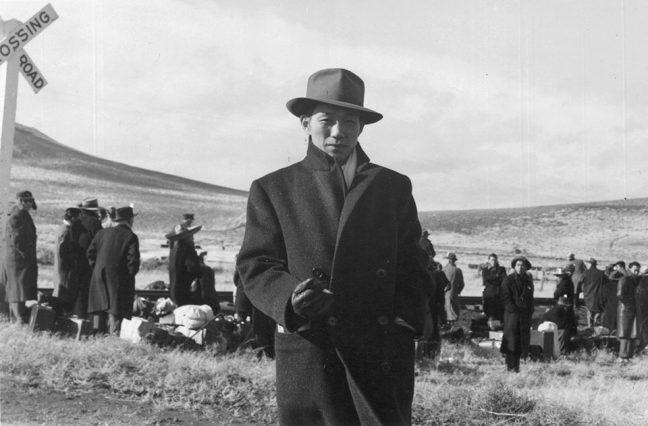
IN THE NEWS

Resistance at Tule Lake: Film Looks at WW2 Internment
“More than 120,000 Japanese-Americans were held at internment camps in the US during the 1940s because they were viewed as a security threat. New documentary, Resistance at Tule Lake, looks at some of the internees’ resistance to incarceration at one California detention camp. BBC Talking Moves’ Tom Brook reports.”

“When Eddie Kobayashi recalls Easter Sunday from his childhood days, one that stands out was in 1942. The then 5-year-old and his family evacuated to an assembly center, a temporary camp used while permanent internment camps were built during World War II. His father’s story was told as part of a documentary called ‘Resistance at Tule Lake,’ which is showing across the country this year.”

“The film, Resistance at Tule Lake, documents the protests and what else happened to the 12,000 internees labeled ‘disloyal’ for telling the government it was wrong for turning its back on American citizens.”

“In these difficult political times, resistance appears every day—from marches to political organizing to Star Wars movies to hashtags. But for many within the Japanese American community, resistance remains a difficult and painful topic. Sansei Konrad Aderer’s latest documentary, Resistance at Tule Lake, seeks to address that topic, focusing on the most controversial of the ten long-term concentration camps by the War Relocation Authority.”

“The documentary, which is being screened at select venues, gives audiences a rarely-heard opportunity to listen the voices of those who were unexpectedly plunged into ‘a hell,’ as one survivor recounts, but maintained the strength not only to survive, but also to fight back.”
![]()
“Interviewing survivors, and traveling on a pilgrimage to the desolate remains of the Tule Lake relocation camp in far Northern California, Mr. Aderer shows that the narrative of stoic obedience in the face of repression and imprisonment is radically incomplete… Toggling among fascinating, often sorrowful film and photographs from the period, and the still vivid anger of the now elderly former prisoners, ‘Resistance at Tule Lake’ is a potent piece of history at a time when the United States is once again feeling less than hospitable.”

“For many viewers, ‘Resistance at Tule Lake’ will not be an easy watch… The newsreels showcase the complete obliviousness of the American public’s perspective on Japanese [incarceration]. The interviews from surviving Japanese internees are maddeningly depressing as they nonchalantly tell of their experiences in the camps. They fight back tears as they tell their story, yet they end each harrowing tale of deprivation and humiliation with the same sentiment: that they still love this country and are proud to be Americans.”

“This particular film directed by Japanese American filmmaker Konrad Aderer provides a deep insight into the resistance movement of the Japanese Americans incarcerated at the Tule Lake Segregation Center, and quashes the idea that Asians are obedient, non-confrontational, don’t voice their dissent and are happy to be apart of the model minority myth.”

“When I was making my first film ‘Enemy Alien’ about a Palestinian activist Farouk, I was looking for a parallel in Japanese-American history. I found it in Tule Lake. Pretty much everything that he did: conduct hunger strikes, reason with his captors, fight illegal cases on base of constitutional principles—that’s all the things that Japanese Americans did at Tule Lake. And they had the same kind of consequences—beating, torture, deportation, yet they still persisted, which is why I felt this story was invaluable to tell because it was so little-known.”
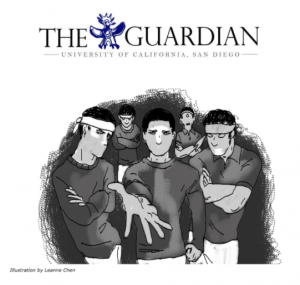
“‘Resistance at Tule Lake’ reifies both the strength of people and the inexcusable, illegal actions of a government that has made a tradition of subjugating its citizens. The proud Americans dragged to this camp fought for their constitutional rights and were rebuked for it… As a nation of immigrants and contradictions, we must establish the fight for equality and justice as an active goal — not a pipe dream.”




